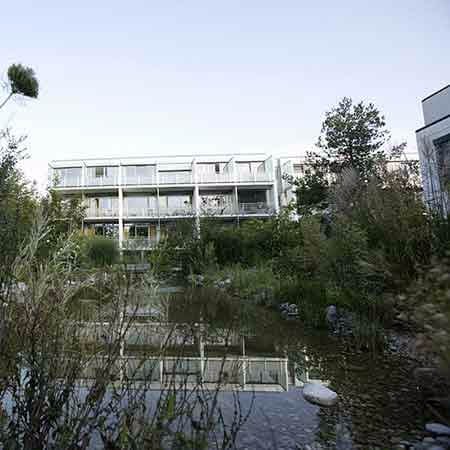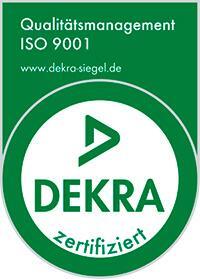Kidney cancer accounts for 3% of the total incidence of malignant neoplasms. Many authors attribute this rapid shift in kidney cancer morbidity to the improvement of diagnostic capabilities of the modern techniques of examination, which allow the detection of early stage, asymptomatic pathologies.
Clear cell carcinoma accounts for most cases of kidney cancers, which makes it one of the most common tumors. It gets its name because the cellular structure has optically clear (light) cytoplasm.
Content
- Spreading of kidney cancer
- Treatment options for renal cell carcinoma
- Can the tumor be removed while preserving the kidney?
- Targeted therapy
- Prognosis
- The cost of treatment in Europe
- Treatment in Europe with Booking Health
Spreading of kidney cancer
Renal cell carcinoma metastasizes hematogenously and lymphatically. Metastases are found in 25% of patients at the time of diagnosis confirmation. Life expectancy of these patients ranges from 6 to 12 months and only 10% of patients are alive in two years. Approximately 30-50% of patients develop metastases at various times after nephrectomy. The prognosis of the latter group is somewhat better; however, the 5-year survival rate does not exceed 9%. The most frequent localizations of multiple distant cancer metastases are lungs, bones, liver, adrenal glands, and the other kidney. Solitary metastases or metastatic lesions of only one organ occur in 8-11% of cases.
Speaking about the course of metastatic kidney cancer, it is impossible not to mention cases of spontaneous regression and stabilization. Spontaneous regression is noted in 0,8% of patients with kidney cancer. This refers to the vast majority of clinical cases of regression of pulmonary metastases. Stabilization of the disease defined as the absence of growth and appearance of new metastases is observed in 20-30% of patients. The same frequency of stabilization of the health condition (absence of primary tumor growth) is observed in patients with kidney cancer without metastases. This phenomenon must be taken into account when deciding on surgical or systemic treatment in high-risk patients who, in fact, may live longer without any treatment.
Treatment options for renal cell carcinoma
Treatment of clear cell kidney cancer is based on several common therapies used individually or in combination. Based on the type of tumor, clinical stage, age, state of health and well-being of patients, existing contraindications, and other factors, an attending physician may resort to different therapies for kidney cancer treatment.
The most effective way to treat renal cell carcinoma is the excision of the neoplasm. If the neoplasm isn’t large, the kidney is preserved and resection of its part is carried out. In addition to the conventional performance of these two surgeries, there is also a laparoscopic technique. With this approach, the rehabilitation period is shorter.
Diagnosed early, renal cell carcinoma is well treated, with a survival rate of up to 90%. And the main treatment approach contributing to the percentage of survival is surgery. Depending on how large the renal cell carcinoma is, the volume of intervention may vary. Generally, radical surgery is performed, which implies excision of the kidney along with the neoplasm. But if the formation does not exceed 4 cm, oncologic surgeons may perform the organ-sparing operation instead of the radical kidney resection (removal of part of the kidney along with the tumor).
In recent years, new directions in the treatment of kidney cancer are increasingly being applied. One of the most advanced and effective methods is stereotactic radiotherapy using CyberKnife. This method allows treating malignant tumors even in hopeless clinical cases. The distinctive features of CyberKnife treatment are noninvasiveness, painlessness, absence of side effects, or scars, and maximal preservation of healthy tissues surrounding the removed tumor. In addition, the patient continues to lead a normal life, visiting the appointed sessions on an outpatient basis.
Drug therapy (targeted or hormone therapy, or immunotherapy) is prescribed if the diagnosis of advanced kidney cancer is confirmed and it cannot be removed surgically.
Can the tumor be removed while preserving the kidney?
As the instrumental diagnostic techniques are widely applied in clinical practice today, up to 70% of kidney oncology cases are diagnosed at two initial stages of development. In such a situation, the patient’s condition can be improved with optimal treatment, i.e. surgery. The fact is that renal cell carcinomas are not sensitive enough to traditional chemotherapy or radiotherapy. And the tactics that allows curing the patient usually involves surgery.
The size of the renal cell carcinoma and its location influence the decision of surgeons to preserve the kidney during the neoplasm removal. The intervention can be performed using various surgical techniques, including minimally traumatic endoscopic techniques such as laparoscopic kidney resection, and robot-assisted surgery. There are also several minimally invasive methods based on the use of certain physical factors, for example, cryodestruction or radiofrequency thermal ablation (RFA). The former involves freezing of the neoplasm, the destruction of cells is achieved through the application of the lowest possible temperatures, while the radiofrequency thermoablation involves heating, resulting in the death of tumor cells.
Not always, but with the help of endoscopic technologies, it is also possible to perform nephrectomy, if it is impossible to save a kidney due to the size of the tumor.
Targeted therapy
Given the fact that renal cell carcinoma belongs to the neoplasms that are resistant to chemotherapy with cytostatic drugs, choosing therapy for kidney neoplasms at an advanced stage remains an extremely difficult task. In the majority of clinical trials investigating the efficacy of cytostatics, the cumulative response to therapy was no more than 0-6%. One of the most studied mechanisms explaining the resistance of renal tumors to chemotherapy is overexpression of multidrug resistance-associated protein.
Despite their resistance to cytostatic therapy, renal neoplasms have a certain sensitivity to immunogenic influences and targeted drugs. Renal cell carcinoma metastases are known to regress, while there are clinical cases of prolonged remission against the absence of therapy, which indirectly indicates the immunodependence of cancer cells. Immunotherapy is the most progressive option for treatment of metastatic renal cell carcinoma. The use of cytokines allows achieving partial or complete regression of metastases in some patients, but the total objective response to treatment does not exceed 5-15 %.
Targeted therapy leads to an increase in clinical survival of patients with metastatic cancer, but the action of some targeted drugs may lack stability, so, ultimately, the long-term remission depends on the risk groups patients belong to. The use of both targeted therapy and immunotherapy is most effective in the good prognosis group, rather than in patients with poor prognosis.
Prognosis
So, usually, physicians evaluate the cancer prognosis through the concept of risk groups. Presented statistics do not take into consideration new therapies being established for renal cancer and their impact on statistical survival. With this said, patients with small-sized clear cell renal carcinomas have a more promising prognosis than patients with advanced tumors. With small formations, the survival rate reaches 70%. When cancer spreads or metastasizes, treatment becomes more difficult and the prognosis to survive is about 10%.
An important prognostic criterion is the absence of clinical manifestations and the fact that the tumor is detected accidentally during the examination. In this case, the prognosis is more favorable, than in patients with a history of clinical symptoms.
Patients with a tumor confined to one kidney have a better prognosis. Invasion beyond the organ reduces survival by 30 %, the presence of tumor invasion into the nearby vessels – by 40 %. However, according to the clinical criteria, the advanced stage implies the same survival rate in patients with metastatic renal cell carcinoma with invasion into the paranephral cage as well as with invasion into an adrenal gland. However, researches convincingly prove that invasion into a paranephric cage provides significantly more favorable prognosis than invasion into an adrenal gland.
Also an important prognostic criterion for survival in this health condition is the presence of tumor invasion into the nearby blood vessels. Patients with a tumor thrombus in the renal veins have a worse prognosis than patients without a tumor thrombus (5-year survival of 88%). It was also discovered that patients with thrombus have more negative prognostic factors, such as more extensive local spread and more distant metastases.
Generally, there are low-risk, moderate risk (1 or 2 risk factors), and high risk (3, 4, or 5 unfavorable prognostic factors) groups. Determination of the individual prognosis for a patient with metastatic kidney cancer is currently of great importance in choosing the most effective treatment tactics.
Since the aspects predisposing to the occurrence of malignant kidney tumors are poorly researched and not reliably established, trying to lead a healthy lifestyle, eliminating bad habits, timely treating any diseases and kidney diseases are at the first place among the proxylaxis measures.
For early detection, it’s recommended to undergo preventive examinations, because the appearance of first signs might be indicative of the early stage of the health condition. Be sure to be examined by a urologist and undergo diagnostics if you start to feel lower back pain or notice a change in the color of urine.
The cost of treatment in Europe
European hospitals offer a wide range of innovative treatment techniques for clear cell renal carcinoma, including standard, minimally invasive, and robotic surgery, ablative therapy, personalized drug therapy, and opportunities to participate in clinical trials.
The complexity and thus cost of treatment in Europe depends largely on the stage of the disease. Small tumors can be treated well with minor surgeries. Metastatic cancer needs more serious and long-term treatment with a combination of different therapies. For many patients, the prices of kidney cancer treatment in Europe may seem quite high. Considering the high effectiveness and safety of therapy in European hospitals, this cost of treatment is well justified:
- The price for chemotherapy for clear cell renal carcinoma (1 course) starts at 3,469 EUR
- The price for radiotherapy starts at 15,300 EUR
- The price for diagnostics starts at 1,610 EUR
If you would like to know more about the cost of treatment in Europe, visit the Booking Health website.
Treatment in Europe with Booking Health
Cancer treatment in Europe is becoming increasingly popular due to several advantages. Countries with developed economical systems have a special attitude toward medicine as a science and an important area of social service. Choosing cancer treatment in European hospitals, you can be sure that you will be provided with highly qualified medical care, which 100% is reflected in the cost of treatment.
National cancer centers have a lot to offer. These are the attentive medical staff, consultations and follow-up by the best world-renowned specialists, and access to the latest developments in pharmacology and instrumental diagnostics in European hospitals. Medical personnel of all levels work according to the leading medical standards. Doctors' work is regulated by strictly observed regulatory and legal frameworks, due to which any mistake of a physician entails inevitable legal responsibility.
Booking Health makes it easy for patients to receive access to cancer treatment in European hospitals, because the company is in charge of all the aspects of treatment organization, so that patients don’t have to deal with these issues alone. Patients can count on Booking Health regarding the organization of successful and stress-free trips and treatment.
To get started, fill in the request on the Booking Health website.
Authors:
The article was edited by medical experts, board certified doctors Dr. Nadezhda Ivanisova and Dr. Sergey Pashchenko. For the treatment of the conditions referred to in the article, you must consult a doctor; the information in the article is not intended for self-medication!
Sources:
National Cancer Institute
American Cancer Society
MedlinePlus
















